
Avirup Guha: Cardiovascular Comorbidities and QTc Risks in HR+/HER2- Metastatic Breast Cancer
Avirup Guha, Director of Cardio-Oncology at Georgia Cancer Center, shared a post on X about two papers he co-authored with colleagues published in Cardio-Oncology:
“Two back-to-back papers highlight a critical and overlooked issue in HR+/HER2– metastatic breast cancer (mBC): cardiovascular comorbidities and QTc-risk meds are the norm, not exception.
Here’s what we found and why it matters for oncologists + cardiologists.
Why did we study this?
CDK4/6 inhibitors, the standard of care in HR+/HER2– mBC, prolong QTc – yet most real-world patients are already on QTc-risk drugs and have CV issues.
We launched the CARDIAC‑STAR and QT‑STAR studies to understand real-world complexity.

CARDIAC‑STAR: 6,525 newly diagnosed HR+/HER2– mBC patients (2016–2022).
61.7% had ≥1 CV comorbidity:
- HTN: 50.7%
- Hyperlipidemia: 34.4%
- Diabetes: 19.4%
QTc-risk meds are everywhere:
Among those with CV comorbidities:
- 22.5% on 1 QTc-risk med
- 30.6% on ≥2
Even among those without CV conditions, 15–29% were exposed!
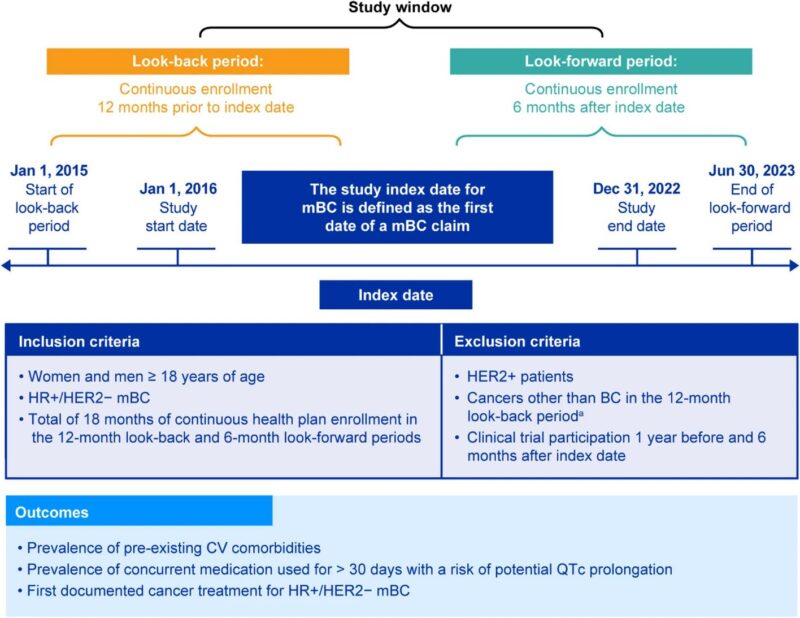
Long-term QTc-risk meds most commonly seen:
- Hydrochlorothiazide (~28%)
- Venlafaxine (~11%)
- Omeprazole (~10%)
These are often prescribed outside oncology – but affect treatment safety with CDK4/6i.

Treatment trends:
Use of CDK4/6 inhibitors + AI as first-line therapy rose from 22% (2016–17) → 31% (2018–22).
Meaning: More patients with background QTc risk are now exposed to additional QTc prolongation.
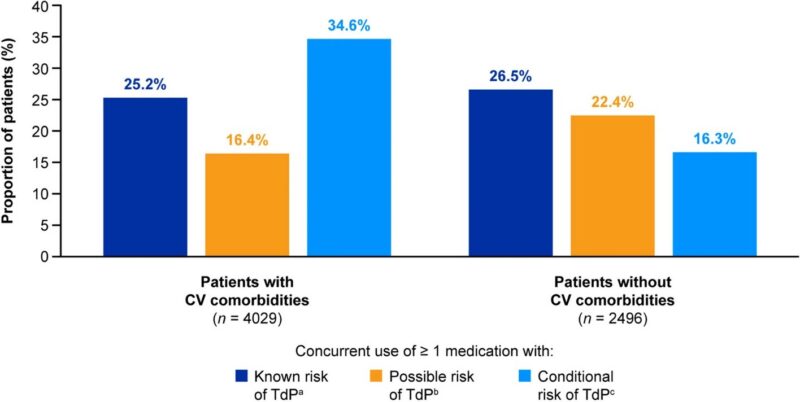
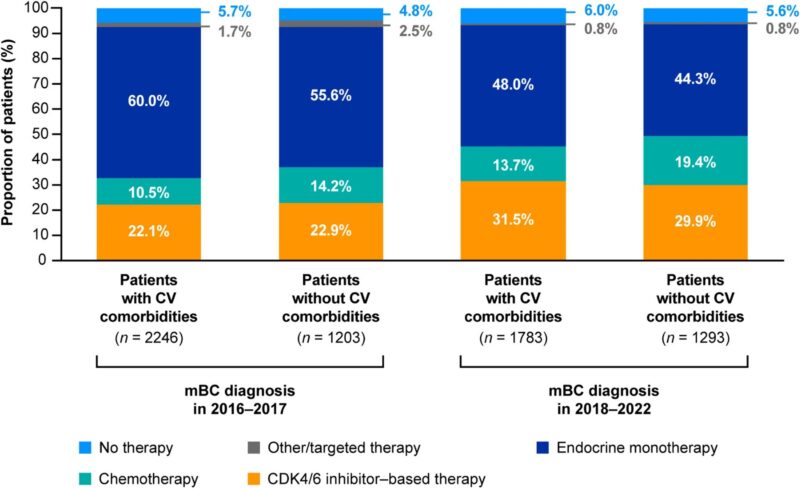
QT‑STAR study: Focused on 1,517 patients receiving first-line CDK4/6i + AI between 2017–2022.
We wanted to know: What’s the QTc-risk during treatment?
At CDK4/6i start:
- 53.3% already on ≥1 QTc-prolonging drug
- 15.4% on ≥1 with known TdP risk
This suggests many are already in the ‘QTc danger zone’ before CDK4/6i even begins.


During follow-up:
- 78.6% had ≥1 QTc-risk med
- 57.1% had a high-risk med
- 50% of total treatment time overlapped with QTc-risk exposure.
Older patients had the highest risk from baseline comorbidities and diuretics.


Clinical takeaways:
- Always check meds before CDK4/6i
- Avoid QTc combos when possible
- Monitor QTc baseline + follow-up
- Choose safer agents in polypharmacy patients
Let’s build safer cardio-oncology pipelines!”
Title: CARDIAC-STAR: prevalence of cardiovascular comorbidities in patients with HR + /HER2 − metastatic breast cancer
Authors: Susan Dent, Avirup Guha, Heather Moore, Doris Makari, Rachael McCaleb, Irene Arias, Stella Stergiopoulos, Benjamin Li, Michael Fradley
You can read the Full Article in Cardio-Oncology.
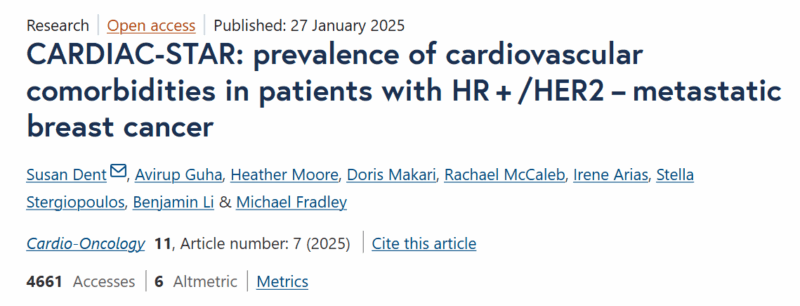
Title: QT STAR: concomitant QTc-prolonging medication use among patients with HR+/HER2− metastatic breast cancer receiving a CDK4/6 inhibitor in first line
Authors: Susan Dent, Heather Moore, Michael Fradley, Chloe Grace Rose, Stella Stergiopoulos, Connie Chen, Benjamin Li and Avirup Guha
You can read the Full Article in Cardio-Oncology.
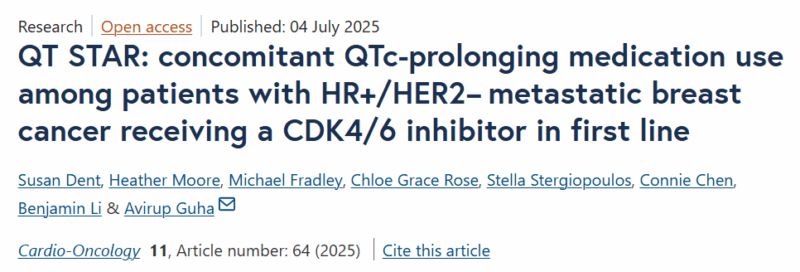
More posts featuring Avirup Guha.
-
Challenging the Status Quo in Colorectal Cancer 2024
December 6-8, 2024
-
ESMO 2024 Congress
September 13-17, 2024
-
ASCO Annual Meeting
May 30 - June 4, 2024
-
Yvonne Award 2024
May 31, 2024
-
OncoThon 2024, Online
Feb. 15, 2024
-
Global Summit on War & Cancer 2023, Online
Dec. 14-16, 2023
